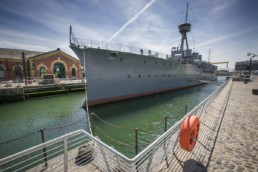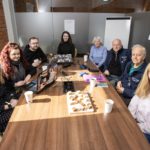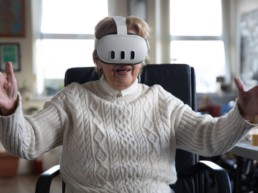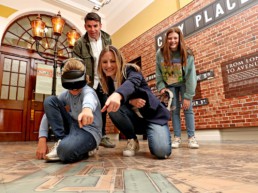Local creative company Aura Digital Studios is developing a new augmented reality experience highlighting HMS Caroline’s heritage. The free-to-download mobile app will give a fascinating glimpse into the lives of the people who worked on this First World War ship through the use of WebXR, 3D animation and storytelling.
The Voyage AR project is one of six prototypes funded by the £120,000 Belfast HUB-IN Challenge Fund which is being delivered by Belfast City Council’s City Innovation Office in partnership with the Maritime Belfast Trust to harness digital innovation to help animate and enrich the city’s Maritime Mile.
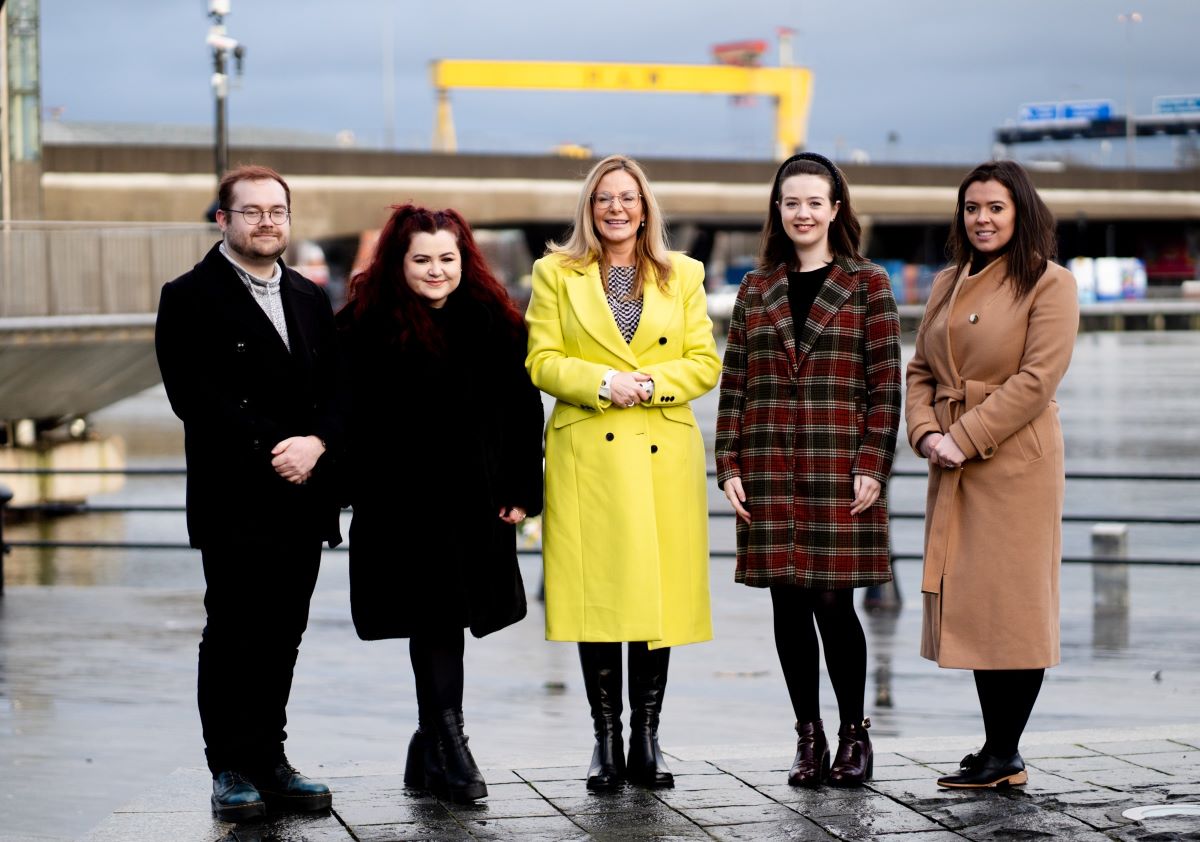
Through co-creation sessions, Aura Digital Studios is working with staff and volunteers at HMS Caroline to learn about the history of the ship and gather stories about the people who lived and worked on it – all rich content for the Voyage AR app.
About HMS Caroline
Based in Belfast’s famous Titanic Quarter and berthed in Belfast for almost 100 years, HMS Caroline is the last known surviving warship from one of the largest ever naval battles, the Battle of Jutland in 1916. HMS Caroline offers a unique opportunity to experience life aboard a ship largely intact from the day it was completed in 1914. The ship – including the living quarters, signal school, engine room, sick bay and galley – have been authentically and painstakingly restored.
Project partners and support
This project has been supported by a range of organisations, community groups and businesses along the Maritime Mile.
- HMS Caroline
- Belfast City Council’s City Innovation Office
- Maritime Belfast Trust
More information
Find out more about the Voyage AR project at www.auradigitalstudios.com/voyagear-hmscaroline.
Find out more about the Belfast HUB-IN Challenge Fund at www.smartbelfast.city/story/belfast-hub-in-funding.
Find out more about Belfast’s Maritime Mile at www.maritime-mile.com.
The Belfast HUB-IN project is part of a €7.9 million European initiative that aims to transform historic urban areas through innovation and spread public benefits from urban regeneration. It’s funded by the European Union’s Horizon 2020 research and innovation programme under grant agreement No. 869429.


